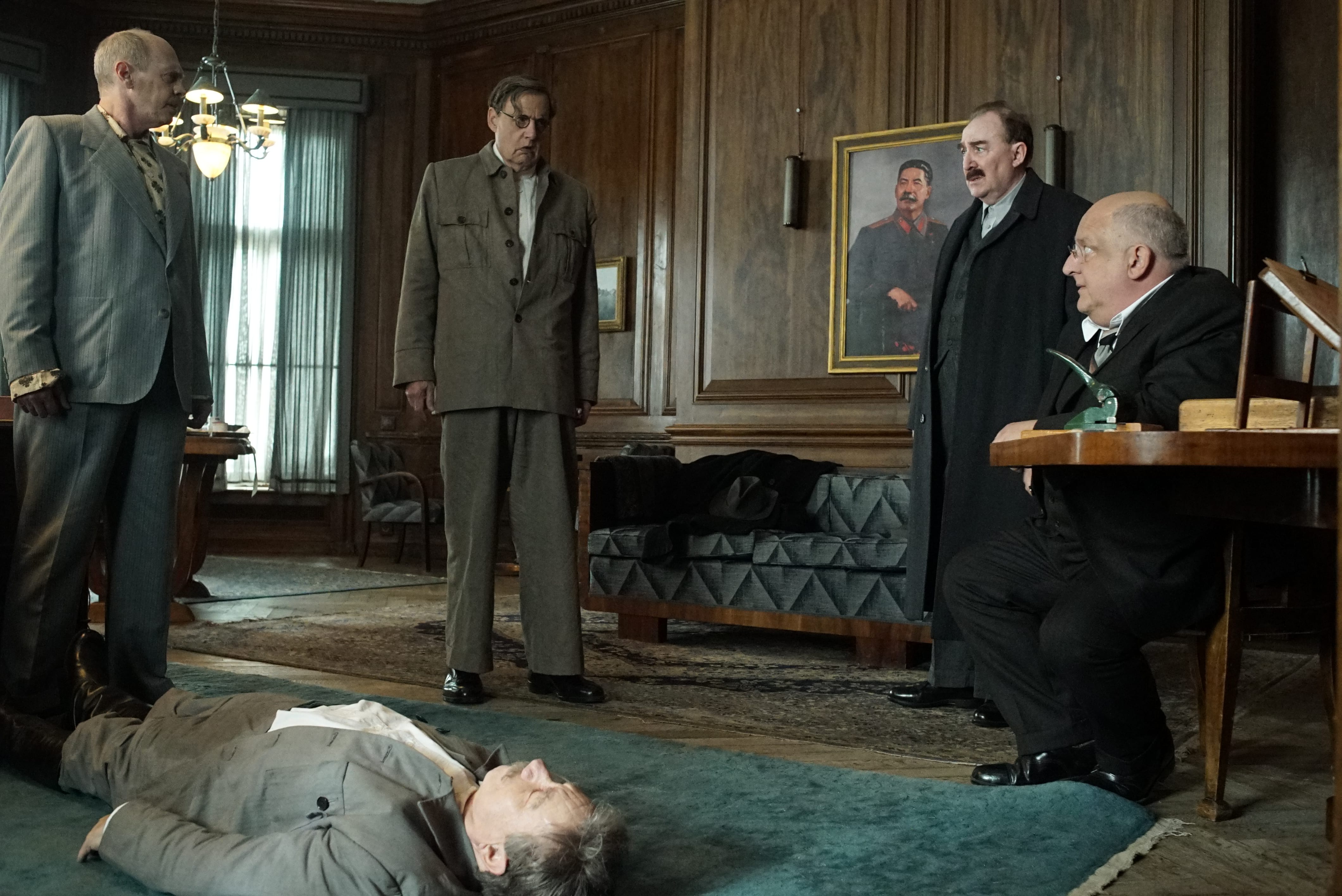I can’t decide whether Armando Iannucci’s new comedy The Death of Stalin is brilliant or dangerous, so I’m gonna stick with “both.”
Iannucci is best known for his 2009 arthouse film In the Loop and for creating the HBO series Veep, both of which skewer politics — and especially its inane practitioners — in a fast-talking, seeming improvisational mockumentary style. The basic set-up is usually the same: A serious issue, that warrants series consideration, is undermined by backbiting, ego trips, verbal snipes and absurdist decisions. But eventually everything works out, because, well, it has to: Either you play or get played, and even a moron can luck into the winners’ circle.
And that’s sort of what makes The Death of Stalin dangerous. The premise is straight from history (unlike his entirely fictionalized Veep pols): In 1953, Joseph Stalin rules the Soviet Union like a petulant madman. He exiled or executed all intelligentsia, including the doctors, for opposing him. (Insert Donald Trump meme here.) But that also means that when he has an aneurysm, there was no one competent left in Moscow to treat him, and he died within a day. In the meantime, his deputies, ministers and assorted sycophants scramble to curry favor with his children, with the military and each other, playing the most appalling chess match of “who gets to steal and pillage the nation for the next decade.”
History tells us Nikita Khrushchev (Steve Buscemi) wrested power away from other members of the council, but I suspect he wasn’t quite as buffoonish as portrayed here. Which begs the question: It is wise during the Age of Collusion to portray the Russians as a bunch of bumblers, even while mocking a bitter and dangerous leader and celebrating his ignominious downfall? And I guess the answer is, a little from column A, a little from column B.
 You can’t miss the current political commentary, even though the screenplay is based on a comic book of the same name. The way the proletarian cower in fear about whether calling Stalin in 17 minutes means 17 minutes from the start of the conversation or 17 from the end, quaking with the threat of being erased, says something about how dictatorial executives don’t breed loyalty, but weakness. The film says “good riddance” to Stalin and his ilk, but also ponders whether what comes after is an improvement.
You can’t miss the current political commentary, even though the screenplay is based on a comic book of the same name. The way the proletarian cower in fear about whether calling Stalin in 17 minutes means 17 minutes from the start of the conversation or 17 from the end, quaking with the threat of being erased, says something about how dictatorial executives don’t breed loyalty, but weakness. The film says “good riddance” to Stalin and his ilk, but also ponders whether what comes after is an improvement.
It’s a fluid, rambling film, which begins with worries over a concert recording, touching on a downed airliner, what people are still alive though thought dead, which faction will seize power and how to stage a coup all in its two hour runtime, but that also makes it a lively an unexpected ride. Iannucci, in the best tradition of old Hollywood comedies, doesn’t even attempt to get his cast to seem Russian — they speak in all kinds of American and British accents, use colloquialisms liberally and in general seem to have a good ol’ time. (Among the name stars in the big cast, other than Buscemi, are Jason Isaacs, Jeffrey Tambor, Michael Palin, Rupert Friend and Andrea Riseborough.)
Iannucci’s brand of comedy is an acquired taste, one I respect for its smarts and style, and The Death of Stalin captures his wry critique of political structures perfectly. I just wish it didn’t feel so real.
— Arnold Wayne Jones
Now playing at the Magnolia and Angelika Plano.
